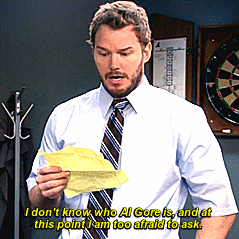Help I Have No Ideas
I honestly have no idea what to do for my multimodal project. Usually something like this comes pretty easy for me, but I’m stuck. I love making movies, it’s been my dream for a long time to go to film school, but I don’t know what I would make a video of for this project. Maybe I don’t understand this assignment completely yet, but I’m at a loss. I think the twitter essay is so cool, but I don’t know if writing a twitter essay about the class will be sufficient enough. I really, really want to make a film of some sort but I can’t think of any ideas.
I guess this could be the time to reflect on the class and maybe an idea will come from there, so don’t mind the stream of consciousness that will follow. This class has made me think about composition and story telling in different ways. Sure this is a class about tutoring composition, but I feel like I’ve learned so much for than that. The most interesting/important things I’ve learned are ideas about communities of practice and legitimate peripheral participation. Working with people in fields you’re interested in, bouncing ideas off of them or just observing their work, I think that’s the best way that people learn. I’m excited to hopefully get hired next semester for English 30, and I want to take these ideas to my students.
I’ve been trying to write this blog for an hour and I still have no idea what I’m going to do for my multimodal project. So if anyone has any ideas, please hitcha sista up.

